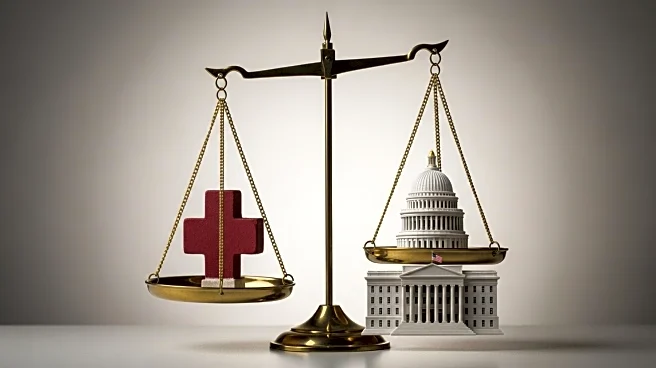What's Happening?
The US government has shut down after congressional Democrats refused to support a Republican funding plan without concessions on healthcare. The GOP controls both the Senate and the House, but failed to secure the necessary Democratic support to advance their bill, which aimed to fund the government until November 21. Democrats demanded changes to Medicaid cuts and health insurance subsidies, which Republicans rejected. As a result, federal employees face unpaid furloughs, while essential staff must work without pay. The shutdown reflects ongoing partisan conflicts over budget priorities and healthcare policy.
Why It's Important?
The government shutdown has immediate impacts on federal operations, affecting employees and services nationwide. It highlights deep divisions in Congress over healthcare and budgetary issues, with potential consequences for public policy and economic stability. The shutdown may disrupt government functions and delay critical services, affecting millions of Americans. The impasse underscores the challenges of bipartisan cooperation in addressing complex policy issues, particularly in healthcare.
What's Next?
Senate Republicans have scheduled another round of votes on the funding bills, hoping to persuade Democrats to change their stance. The ongoing negotiations may lead to further political maneuvering and potential compromises. Stakeholders, including political leaders and advocacy groups, will likely continue to exert pressure on lawmakers to resolve the impasse. The outcome of these negotiations will determine the duration of the shutdown and its broader impact on government operations.
Beyond the Headlines
The shutdown raises ethical questions about governance and the responsibility of elected officials to prioritize public welfare over partisan interests. It also highlights the complexities of healthcare policy and the challenges of achieving consensus in a polarized political environment. The situation may influence future legislative strategies and impact public perceptions of government effectiveness.










